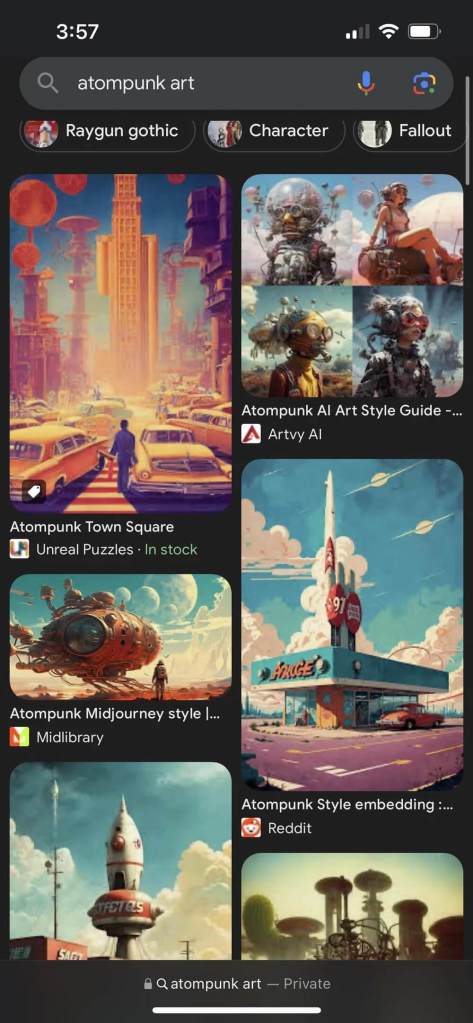AI has its uses, but it's creating new frustrations for those searching for authentic content. A Reddit post in the r/mildlyinfuriating subreddit recently captured this sentiment perfectly.
One user shared a screenshot of their Google search for "atompunk art," which yielded nothing but AI-generated images. Their frustration resonated with commenters, sparking a larger conversation about the challenges of navigating the internet in the age of generative AI.

Commenters offered tips to cut through the noise, like adding terms such as "-AI" or "-openai" to exclude AI-generated content from search results.
One user quipped, "I'm surprised there isn't a 'non-AI only' checkbox yet," while another lamented, "What we have to do to find non-AI images these days… it sucks."
While the inconvenience of searching for non-AI art may seem minor, it highlights deeper concerns about AI's impact — not just on creativity but also on the environment. As generative AI proliferates, so does the infrastructure that powers it, and the environmental costs are significant.
Data centers that host AI servers consume vast amounts of water for cooling, with estimates suggesting AI infrastructure could soon use six times more water than the country of Denmark. These centers also demand enormous quantities of energy, much of which comes from dirty energy sources. A single ChatGPT request reportedly uses 10 times the electricity of a Google search, and experts predict AI will drive a 160% increase in data center power demand by 2030.
The physical materials required for AI are equally concerning. Building a single two-kilogram computer requires 800 kilograms of raw materials, including rare earth elements often mined unsustainably. Once obsolete, the electronics contribute to hazardous e-waste containing toxins like mercury and lead.
"There is still much we don't know about the environmental impact of AI, but some of the data we do have is concerning," said Golestan (Sally) Radwan, chief digital officer of the United Nations Environment Programme. "We need to make sure the net effect of AI on the planet is positive before we deploy the technology at scale."
The explosion of AI has driven the number of global data centers to surge from 500,000 in 2012 to eight million today. As the technology grows, so do its demands on the planet, prompting urgent questions about sustainability and resource use.
🗣️ Do you worry about companies having too much of your personal data?
🔘 Absolutely 👍
🔘 Sometimes 🤔
🔘 Not really 👎
🔘 I'm not sure 🤷
🗳️ Click your choice to see results and speak your mind
For now, frustrated users like the Reddit OP are left grappling with the everyday annoyances AI creates, from filtering search results to questioning whether convenience is worth the environmental cost.
As one commenter put it, "The internet is dead."
Whether AI can revitalize it — or further erode it — remains to be seen.
Join our free newsletter for easy tips to save more and waste less, and don't miss this cool list of easy ways to help yourself while helping the planet.









